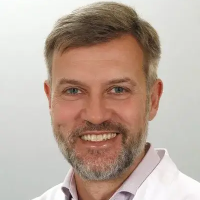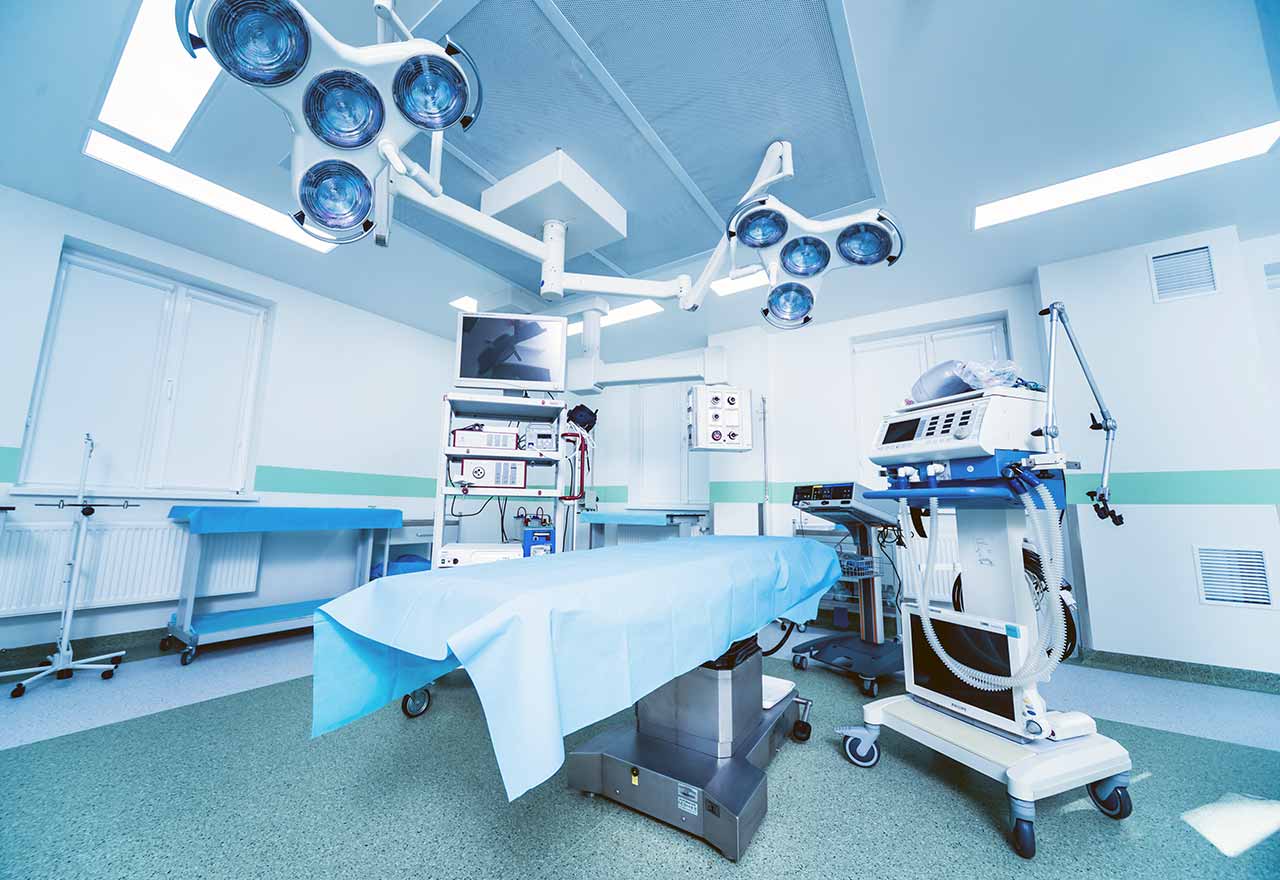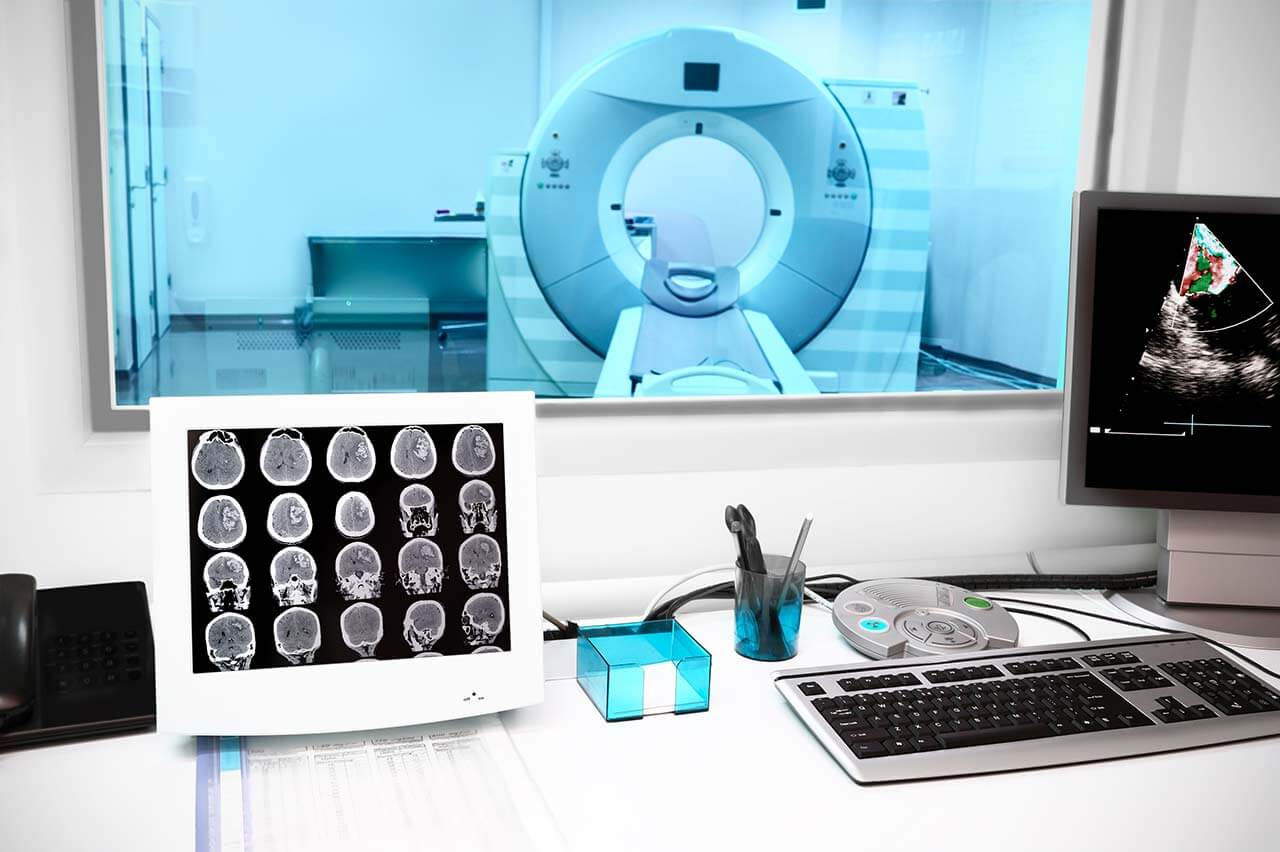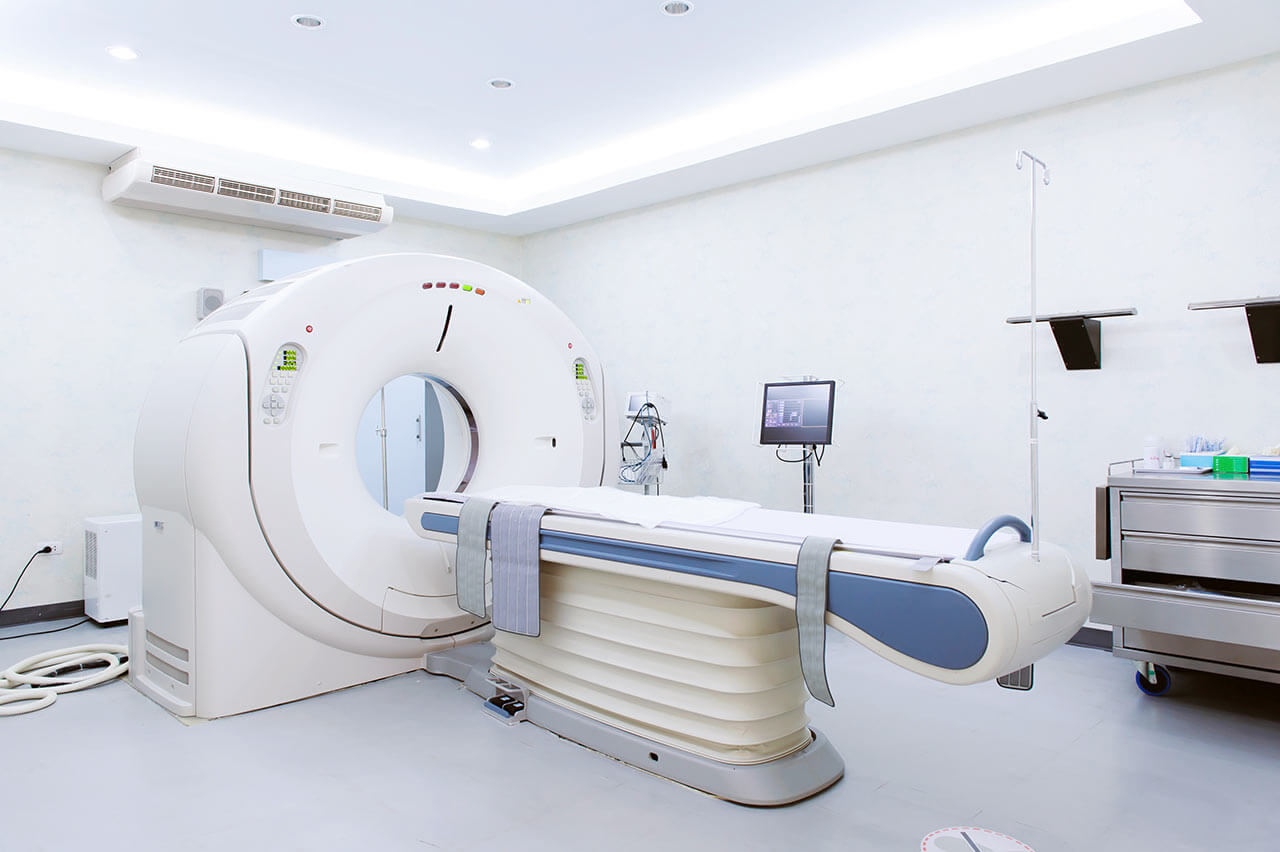
The program includes:
- Initial presentation in the clinic
- clinical history taking
- physical examination
- review of medical records
- laboratory tests:
- complete blood count
- general urine analysis
- biochemical analysis of blood
- TSH-basal, fT3, fT4
- tumor markers
- indicators of inflammation
- indicators blood coagulation
- CT/MRI/x-ray scan
- computer 3d reconstruction
- preoperative care
- corrective jaw surgery
- symptomatic treatment
- control examinations
- the cost of essential medicines and materials
- nursing services
- full hospital accommodation in 2 bedded room
- explanation of future recommendations
Service
You may also book:
 BookingHealth Price from:
BookingHealth Price from:
About the department
The Department of Adult and Pediatric Oral, Maxillofacial Surgery at the University Hospital Hamburg-Eppendorf offers a full range of services for the diagnosis and treatment of diseases, injuries, and malformations of the oral cavity, dental and maxillofacial apparatus, and face and neck in adults and children. The department is one of the largest and most advanced healthcare facilities of this profile in Germany. The surgical treatment of cleft lip and palate in children, craniofacial defects, benign and malignant tumors of the oral cavity, cranial bones, facial skin, and salivary glands, dysgnathia (malocclusion), temporomandibular disorders, and oral and maxillofacial injuries occupy a central place in the clinical practice of the department. Surgical procedures are performed in state-of-the-art operating rooms using advanced computer-assisted navigation technologies and 3D imaging equipment. Aesthetic considerations are always taken into account when planning surgery. Cancer patients are treated in close cooperation with the Cancer Center Hamburg (UCCH), which allows for the consideration of all clinical features of the case and the development of an optimal treatment plan. It should be noted that the department was the first clinic in Germany specializing in oral and maxillofacial surgery to be awarded the quality certificate from the German Cancer Society (DKG). The Head Physician of the department is Prof. Dr. med. Dr. med. dent. Martin Gosau.
One of the main specialties of the department is surgery to correct cleft lip and palate in children. Unfortunately, this congenital malformation is quite common and its surgical correction is considered a complex operation that requires a high level of professionalism from the surgical team. With more than 1,000 cleft lip and palate surgeries performed each year, the department's specialists have extensive experience in the medical care of young patients with this congenital anomaly. Surgical treatment consists of a series of operations: the primary operation is performed at an early age and aims to fix non-fused tissues in order to achieve a satisfactory functional and aesthetic result; the secondary cheiloplasty (cleft lip surgery) and uranoplasty (cleft palate plastic surgery) are technically more complex, as the surgeon is faced with the task of eliminating not only residual defects of the cleft lip and palate, but also scars from previous surgical procedures. Each stage of the surgical treatment is carefully planned on an individual basis. Cheiloplasty and uranoplasty in children are performed with the use of the latest generation of surgical microscopes. Reconstructive plastic surgery of cleft lip and palate defects in adults is also included in the range of services.
The department's surgical team also focuses on patients with benign and malignant tumors of the oral and maxillofacial region, with special emphasis on oral cancer, salivary gland cancer, skull and facial skin malignancies (certified by the German Cancer Society, DKG). State-of-the-art navigation systems and 3D imaging devices are used during surgery to ensure high efficiency and safety of surgical manipulations. The treatment of maxillofacial malignancies rarely involves surgery alone, so chemotherapy and/or radiation therapy are also included in the therapeutic regimen. The oral and maxillofacial surgeons are also skilled in reconstructive flap plastic surgery using microsurgical techniques to correct defects after tumor removal surgery.
Patients with oral and maxillofacial injuries regularly seek medical attention from the department. The most common complaints are dental trauma, scalp lacerations, and nasal, mandibular, and midfacial fractures. Depending on the severity of the injury, doctors offer conservative treatment or advanced osteosynthesis procedures.
The range of medical services provided by the department includes the following:
- Diagnostics and surgical correction of cleft lip and palate in children and adults
- Diagnostics and treatment of benign and malignant tumors of the oral and maxillofacial region
- Diagnostics and treatment of oral cancer
- Diagnostics and treatment of jaw cancer
- Diagnostics and treatment of lip cancer
- Diagnostics and treatment of skull base tumors
- Diagnostics and treatment of facial skin tumors
- Diagnostics and treatment of salivary gland tumors
- Diagnostics and treatment of oral and maxillofacial injuries
- Diagnostics and treatment of dental trauma
- Diagnostics and treatment of scalp lacerations
- Diagnostics and treatment of nose fractures
- Diagnostics and treatment of mandibular fractures
- Diagnostics and treatment of midfacial fractures
- Diagnostics and treatment of oral and maxillofacial inflammatory diseases
- Diagnostics and treatment of osteomyelitis of the jaw
- Diagnostics and treatment of osteoradionecrosis of the jaw
- Diagnostics and treatment of medication-related osteonecrosis of the jaw
- Diagnostics and treatment of bisphosphonate-related osteonecrosis of the jaw
- Diagnostics and treatment of neck phlegmon
- Diagnostics and treatment of neurofibromatosis
- Diagnostics and treatment of craniosynostosis
- Diagnostics and treatment of vascular malformations in the face and oral cavity
- Diagnostics and treatment of craniomandibular dysfunction
- Diagnostics and treatment of dysgnathia (malocclusion)
- Diagnostics and treatment of temporomandibular disorders
- Dentoalveolar and periodontal surgery
- Diagnostics and treatment of oral mucosal diseases
- Diagnosis and treatment of leukoplakia
- Diagnostics and treatment of jaw cysts
- Diagnostics and treatment of radicular cysts
- Diagnostics and treatment of follicular cysts
- Diagnostics and treatment of odontogenic jaw tumors
- Diagnostics and treatment of odontoma
- Diagnostics and treatment of ameloblastoma
- Diagnostics and treatment of keratocystic odontogenic tumors
- Dental implantology
- Diagnostics and treatment of oral mucosal diseases
- Other medical services
Curriculum vitae
After studying human medicine and dentistry in Wuerzburg and Munich, Prof. Gosau completed his board certification at the University Hospital Munich. From 2008 to 2013, he worked as a Senior Physician and then as Deputy Head Physician of the Department of Oral and Maxillofacial Surgery at the University Hospital Regensburg. Subsequently, Prof. Gosau became Head Physician of the Department of Oral and Maxillofacial Surgery at the Murnau Trauma Clinic. This was followed by the position of Head Physician of the Department of Oral and Maxillofacial Surgery at the Nuremberg Hospital. Since September 2018, he has been Head Physician of the Department of Adult and Pediatric Oral, Maxillofacial Surgery at the University Hospital Hamburg-Eppendorf.
Dr. Gosau's research interests include biomaterials and the development of antibacterial coatings, as well as bone regeneration using dental stem cells. His clinical interests include the treatment of cleft lip, jaw and palate, malocclusion (dysgnathia), and head and neck tumors using primary microvascular reconstructions, including extensive local tumors.
Photo of the doctor: (c) Universitätsklinikum Hamburg-Eppendorf (UKE)
About hospital
According to the Focus magazine, the University Hospital Hamburg-Eppendorf is one of the top ten hospitals in Germany!
Since its foundation in 1889, the hospital has taken a leading position in the European medical arena, which it still holds today. A highly competent medical team of more than 15,300 employees takes care of the health of patients. Approximately 2,900 of them are physicians and researchers, and more than 3,400 work as nurses and therapists. The hospital has 1,738 beds for inpatient treatment, and many diagnostic and therapeutic services are provided on an outpatient basis. A solid foundation for successful clinical practice in the medical complex is formed by a combination of research achievements with state-of-the-art equipment and the highest professionalism of doctors. In addition, the hospital has a modern and extremely comfortable infrastructure. The most important value for every employee of the University Hospital Hamburg-Eppendorf is the health and well-being of every patient.
The medical facility was the first university hospital in Europe to implement an electronic system for storing patient medical reports. As a result, all diagnostic and treatment protocols are stored electronically. In 2011, the hospital was certified as the first fully digital hospital in Europe.
The hospital represents all areas of modern medicine. The doctors of the healthcare facility have a wealth of theoretical knowledge and vast clinical experience, which allows them to easily cope with the treatment of both common and extremely rare, complex clinical cases. About 550,000 patients are treated here each year, over 450,000 of whom receive outpatient medical care.
An important part of the work of the University Hospital Hamburg-Eppendorf is research activities aimed at developing innovative diagnostic and treatment methods. The main areas of research of the hospital include neurobiology, oncology, cardiovascular research, and research on infectious and inflammatory diseases. Special attention is also given to research in molecular imaging and skeletal biology.
The hospital is distinguished by its first-class level of medical care, which is confirmed by numerous quality certificates of European and international standards: DIN EN IS0 9001 certificate, certificates of the German Cancer Society (DKG) in the treatment of breast cancer, colon cancer, gynecological cancer, prostate cancer, and other oncological diseases, certificate of the German Cardiac Society (DGK) in the treatment of acute coronary syndrome, certificate of the German Spine Society (DWG), and others.
Photo: (с) depositphotos
Accommodation in hospital
Patients rooms
The patients of the University Hospital Hamburg-Eppendorf stay in comfortable single and double bright rooms with a modern design. Each patient room has an ensuite bathroom with a shower and a toilet. The standard patient room furnishings include an automatically adjustable bed with an orthopedic mattress, a bedside table, a wardrobe, a table and chairs for receiving visitors, a telephone, a radio, and a TV. Wi-Fi access is available in patient rooms and throughout the hospital.
If desired, patients can stay in single enhanced-comfort rooms. These rooms are more spacious and are equipped with upholstered furniture, a safe, and a mini-fridge.
Meals and Menus
The hospital offers three meals a day: breakfast, lunch, and dinner. Breakfast and dinner are served in the form of buffets, and for lunch you can choose from several set menus – in total, more than 20 dishes are served for lunch, including vegetarian ones.
If, for some reason, you cannot eat all of the foods, you will be offered an individual menu. Please inform the medical staff about your dietary preferences prior to the treatment.
Further details
Standard rooms include:
![]() Toilet
Toilet
![]() Shower
Shower
![]() Wi-Fi
Wi-Fi
![]() TV
TV
Religion
Religious services are available upon request.
Accompanying person
During the inpatient program, an accompanying person may stay with you in a patient room or hotel of your choice.
Hospital accommodation
During the outpatient program, you may stay in a hotel at the hospital.
Hotel
During the outpatient program, you may stay in a hotel of your choice. Managers will help you choose the most suitable options.
The hospital offers a full range of laboratory tests (general, hormonal, tests for infections, antibodies, tumor markers, etc.), genetic tests, various modifications of ultrasound scans, CT scans, MRI and PET / CT, angiography, myelography, biopsy and other examinations. Treatment with medications, endoscopic and robotic operations, stereotaxic interventions is carried out here, modern types of radiation therapy are also used. The hospital offers patients all the necessary therapeutic techniques.
- Coiling and clipping of aneurysms of different localizations
- Transjugular intrahepatic portosystemic shunting in patients with portal hypertension
- Minimally invasive surgeries (da Vinci)
- Removal and reconstruction of mammary glands
- Hyperthermic intraperitoneal chemotherapy (HIPEC)
These are arteriovenous malformations and angiomas, vascular aneurysms, pathologies of the mammary glands, pelvic organ prolapse, urinary incontinence, malignant tumors of various localizations (area of special attention is treatment of intestinal cancer), pathologies of liver and pancreas, cataracts and rare ophthalmic pathologies (aphakia, aniridia ), infertility and other diseases.
- Interventional neuroradiology
- Mammology
- Oncology
- Gastroenterology
- Surgery
Over 2,900 highly qualified physicians and researchers work at the hospital.





